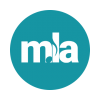Report on CC:DA Meetings, February 2023
Submitted by Keith Knop, MLA Liaison to CC:DA
The 2023 midwinter meeting of CC:DA took place over two days, February 6 and 10. As the second meeting coincided with MOUG it was not possible to secure a substitute MLA representative for that session. Minutes will eventually be posted to the CC:DA public space on ALA Connect: https://connect.ala.org/core/communities/community-home?CommunityKey=289a372f-3ec1-4cb0-8a75-902a1a18deb3; the old CC:DA blog under the ALCTS webspace will continue to be available but is no longer in active use.
Much of the first day was occupied by the report of MARC Advisory Council (MAC) liaison John Myers and in particular discussion of paper 2023-DP01 from the Library of Congress’s Network Development and MARC Standards Office, which proposes adding a subfield to field 264 to record formatted but unsubfielded publication statements. The desire for this subfield arises from LC’s commitment to supply MARC records to other libraries, necessitating a means to translate records between MARC and BIBFRAME, which has great difficulty preserving the context-depending ordering of data in MARC. This discussion paper was met with a very mixed response, both within MAC and in CC:DA discussion. This paper built on an earlier paper, and will return to MAC again, though it was not clear whether it would be as a third discussion paper or as a MARC proposal.
Also on the first day was the report of LC liaison Melanie Polutta, who provided updates on staffing and policy decisions at LC. Items of particular note included updates to the Descriptive Cataloging Manual, Section Z1 guidelines for recording gender information in authority field 375; approval for using ISO 639-3 language codes in addition to or instead of MARC language codes in field 041; and a proposed change (https://www.loc.gov/aba/cataloging/subject/FamilyNARs-white-paper.pdf) that would allow family names established in the Name Authority File to be used for subject access, which currently requires a separate Subject Authority File entry.
Polutta also highlighted some coming changes to the RDA Toolkit and LC-PCC documentation. Beginning later this year, the Toolkit will be moving to an alternating two-month/four-month schedule to allow for periods of more extended development; this will also affect the LC-PCC PS update schedule as those are hosted in the Toolkit. Additionally, LC and PCC have decided to remove the Policy Statements for material now residing in the Community Resources section of the Toolkit and instead incorporate them directly into the LC-PCC Metadata Guidance Documentation (https://loc.gov/aba/rda/mgd/). This affects instructions that were removed from RDA proper but preserved as community practice, which includes the detailed instructions for preferred titles of musical works and access points for musical works and expressions.
The second day featured reports from the PCC and NARDAC liaisons, which are available in the CC:DA public space (linked above). NARDAC has forwarded several reported issues with compound surnames in RDA to CC:DA for review of multiple elements and glossary definitions. A CC:DA task force has been created to examine these issues.
At the request of ALA, NARDAC has reworked several preconference workshops into webinars:
- March 14, 1-2 pm CST: Kathy Glennan: Official RDA: A Standard for Our Changing Times
- March 15, 1-2 pm CST: Thomas Brenndorfer: Title Proper in the Official RDA Toolkit
- March 28, 1-2 pm CST: Melanie Polutta: RDA, Policy Statements, and MGDs: How the Documentation Works Together
- March 30, 1-2 pm CST: Robert L. Maxwell: Describing a Person using Official RDA
PCC has created several new groups, including an advisory committee on identity management and a task group on gender. Several new documents have also been approved, including guidelines for the use of ISO 639-3 language codes in cataloging (https://www.loc.gov/aba/pcc/scs/documents/ISO-639-3-guidelines.pdf) and a set of principles for DEI in metadata creation (https://www.loc.gov/aba/pcc/resources/DEI-guiding-principles-for-metadata-creation.pdf).
